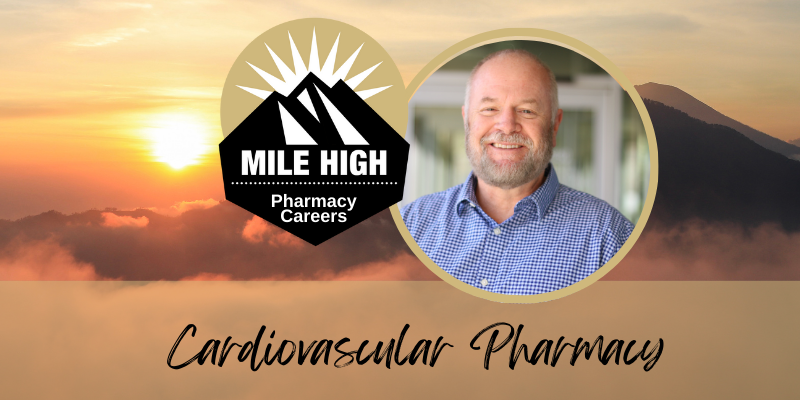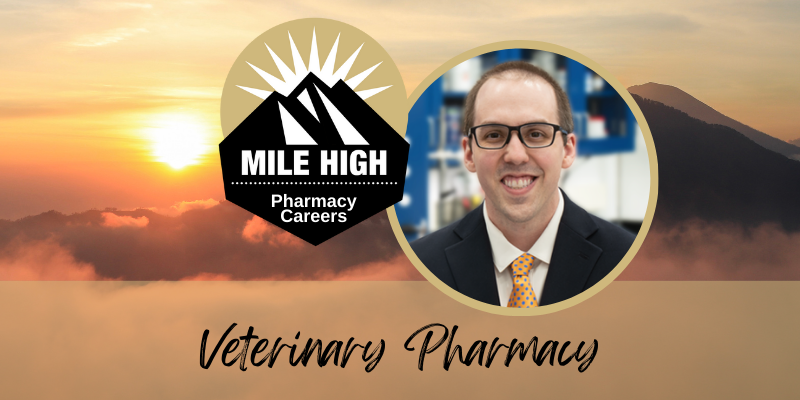The Experiential Programs at CU School of Pharmacy are an integral part of its PharmD education, comprising over 33% of the curriculum. The hands-on learning allows students clinical training opportunities to ensure that students have the self-confidence and ability to practice independently upon graduation.
Students are placed in community pharmacies, hospitals, ambulatory care clinics, and other innovative interprofessional pharmacy practice settings in local, national, and international locations, and are supervised by licensed healthcare practitioners, the majority of whom are pharmacists. Such supervisors are called preceptors, and they are as integral to the PharmD education as the program itself. With over 2,400 preceptors working with the School, this not so small group of mentors are training the next generation. According to Dana Hammer, RPh, and Senior Instructor in the Office of Experiential Programs, socialization research demonstrates that preceptors have the greatest impact on students' development as practitioners, greater than didactic education, practice environments, and values or behaviors prior to engaging in practice.
“The mantra we have in experiential programs is that ‘You can’t teach someone to be a pharmacist in a classroom’, and our preceptors are absolutely invaluable for their instruction and mentoring." - Dr. Wesley Nuffer
“Our preceptors’ knowledge of the pharmacy profession, expertise in their fields, and devotion to our students is invaluable,” explained Megan Thompson, PharmD, Assistant Dean of Experiential Programs and Associate Professor of Clinical Pharmacy. “Our students are fortunate to have access to such a high caliber group of individuals. Our preceptor network spans the globe, each one of them providing unique experiences and opportunities for our students to make meaningful contributions to patient care.”
Dr. Thompson’s colleague, Wesley Nuffer PharmD, Assistant Director of Experiential Programs and Associate Professor, agrees.
“I think the most valuable part of the student pharmacist-preceptor experience is the ‘realism” aspect to training,” Dr. Nuffer said. “Students realize that the decisions they are making and the work they are doing affects real lives and real people. The person they are counseling will actually go home and follow their recommendations. This is something you can’t duplicate through case studies, exams, or even acting patients.”
Each year, the Experiential Office asks students to nominate preceptors for annual awards, and such awards are given out to the preceptors accordingly. This year, the office felt like a change. After two whirlwind years of “pivot!”, the office is more grateful than ever before for all of the preceptors, nominated or not, for their service, dedication, and continued commitment to the field of pharmacy. Rather than highlighting a few preceptors, the Experiential Office decided to share the important role they all play in a PharmD education.
High Expectations
Nominee and CU Pharmacy Assistant Professor, Paul Reynolds, PharmD, explains why he continues to mentor young students.
“I love the fact that I get to see young, aspiring pharmacists getting ready to embrace their career helping others,” he said. “Their level of passion, excitement, and curiosity reinvigorates my clinical inertia and motivation on a daily basis.”
On the nomination form, student Emily Dorgan writes that Dr. Reynolds “perfectly balances maintaining high expectations for learners while simultaneously guiding learners on the path to success.” No small feat in a normal year, let alone another year of ups and downs and through a pandemic.
Enhance Understanding
Fellow nominee Daralyn Morgenson, PharmD, practices at the Mental Health Center of Denver.
“I enjoy how students come with a fresh perspective and always keep me on my toes,” Dr. Morgenson explained. “While I get to introduce them to many new experiences working with people with severe mental illness, a population they may have never experienced before, because the students are so insightful and inquisitive, I’m always learning just as much as they are. “
Two-way learning is part of Dr. Morgenson’s method.
“At the end of the week we had a topic discussion, and we were able to clarify things we did not understand... when I was asked about VMAT2 inhibitor [specialized medicine for neuropsychiatric disorders] and didn't fully understand how they worked she explained it,” P4 Breeanna Sailas wrote. “She went into detail and made sure I had a clear understanding and that wasn't something we needed to know, just something I wanted to understand better.”
Wealth of Knowledge
With preceptors across the globe, students have access to a wide network of professionals happy to share their knowledge. In Boulder, Heather Hazeldine, PharmD, takes students under her wing at The Boulder People’s Clinic, formerly called Clinica Family Health. The organization has a mission to provide high-quality healthcare to individuals and families at a price they can afford.
“… she [Dr. Hazeldine] provided a wealth of knowledge that I have carried with me going forward into future rotations and at my jobsite in the community setting,” wrote P4 Patrick Allen.
Honored, but humble, Hazeldine considers it all in a day’s work.
“The thing I enjoy most about working with students is sharing my passion for ambulatory care clinical pharmacy practice,” she said, “and sharing in their journey of lifelong learning in the pharmacy profession.”
Confidence Boosting
In rural Colorado, Brandon Fritz, PharmD, says the preceptor experience is rewarding.
“It allows me to teach various clinical aspects of pharmacy in an ambulatory care setting,” Dr. Fritz said. “I enjoy bringing fresh perspectives, knowledge and skills to pharmacy interns while learning about new medications and practices being taught in pharmacy school. Providing students a dynamic, engaging clinical environment to practice in also further advances my own goals and clinical knowledge to provide better healthcare to communities in rural, underserved areas.”
Dr. Fritz practices in Colorado’s San Louis Valley, which includes Alamosa, Conejos, Costilla, Mineral, Rio Grande, and Saguache counties. In a rural community with limited access, outpatient pharmacy services are important, and provided a unique opportunity for students.
“Through Dr. Fritz's helpful feedback and ability to cater to my learning style, I now feel confident taking on pharmacy services in this setting,” wrote P4 Parker Cain. “His rotation was one of the most valuable experiences I gained as a student because it really helped to open the door to a whole pharmacy world that I had previously avoided when possible. It also showed me how much of an impact pharmacists can have in an ambulatory care setting.”
Impact is important. So are the preceptors who make it happen for their students, and Dr. Nuffer summarizes their role perfectly.
“The mantra we have in experiential programs is that ‘You can’t teach someone to be a pharmacist in a classroom’, and our preceptors are absolutely invaluable for their instruction and mentoring,” he said.




